News
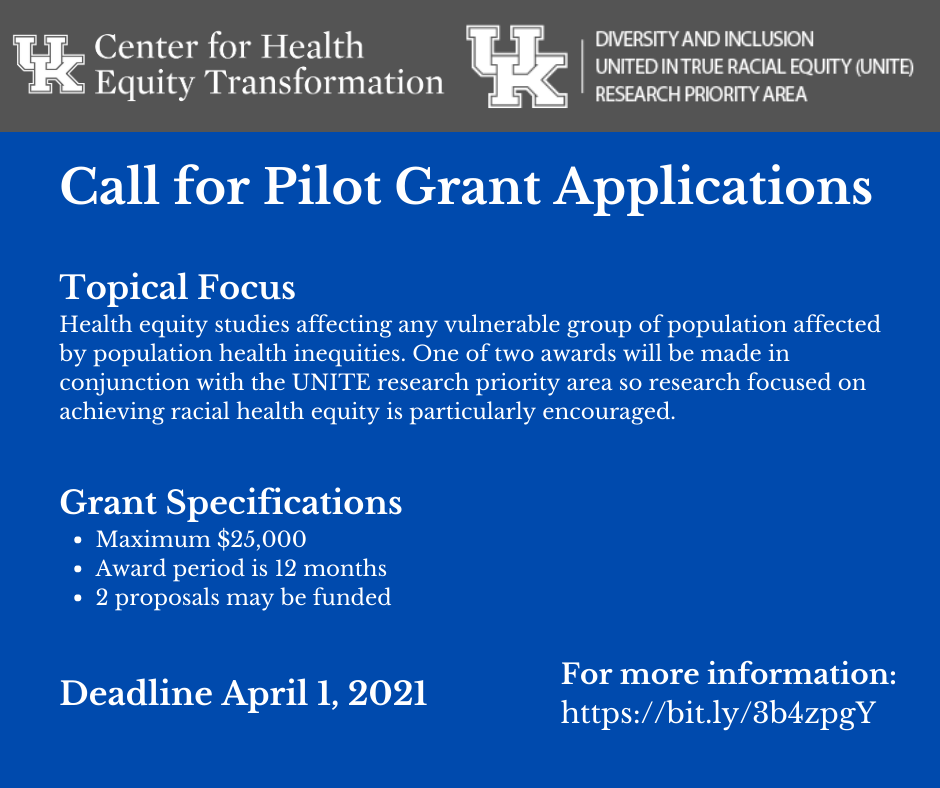
LEXINGTON, Ky. (March 15, 2021) — The Center for Health Equity Transformation (CHET) at the University of Kentucky is now accepting applications for its health equity-focused pilot grants through April 1. The awards are open to health equity studies affecting vulnerable groups or populations affected by health disparities.
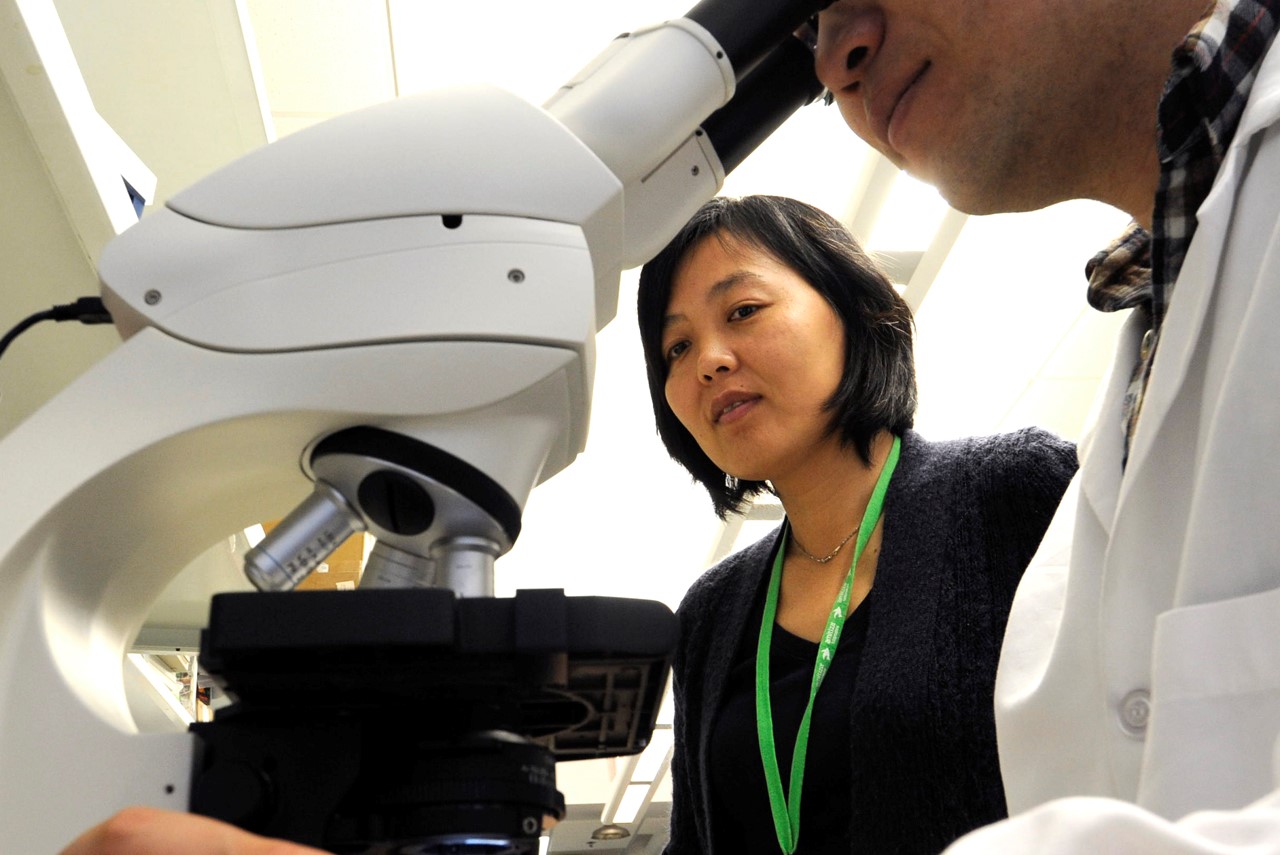
Early into her research career at the University of Kentucky College of Medicine, Tianyan Gao, PhD, says mentorship was vital to her success. Now, as a professor and co-principal investigator of a team supported by the college’s Alliance Research Initiative, she is able to mentor the next generation of researchers who are working to find solutions for one of Kentucky’s major health issues.
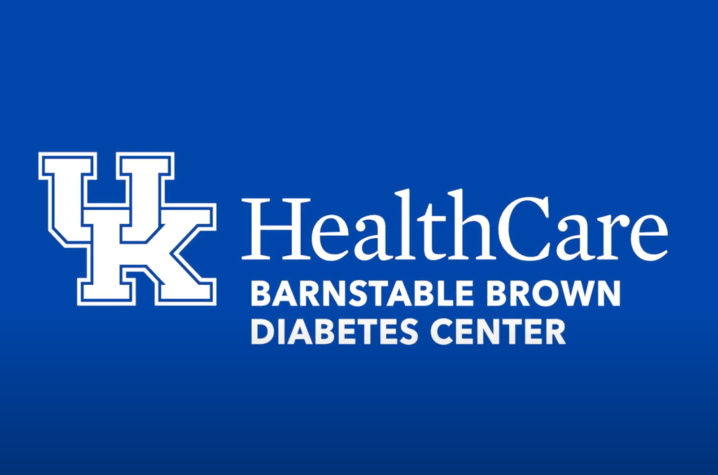
Like most events that have taken place during the past several months, the University of Kentucky Barnstable Brown Diabetes Center's annual Obesity and Diabetes Research Day went virtual for the first time and expanded from a research ‘day’ to a research ‘series.’ Organizers say they were pleasantly surprised by the attendance with as many as 120 participants in one session alone.
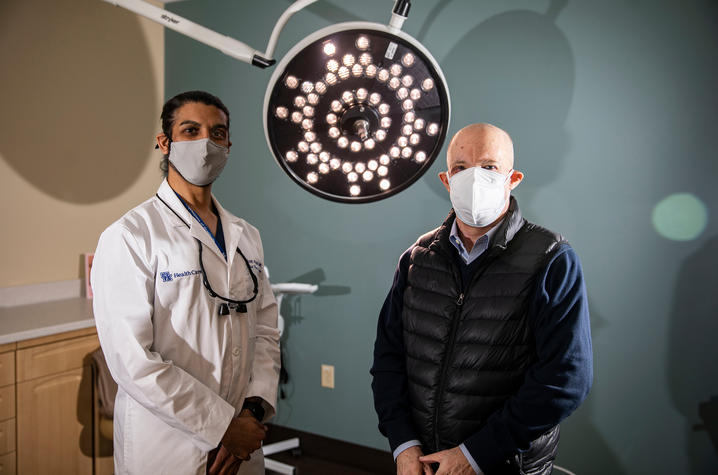
LEXINGTON, Ky. (March 2, 2021) — Jack Hillard of Lexington has dedicated his life to supporting cancer patients. When he became one, he didn’t let that stop him.
Hillard’s journey with cancer started in 1993, when he was diagnosed with large granular lymphocytic (LGL) leukemia. Thankfully, he received an early diagnosis and has been able to keep the leukemia at bay with medication for over 25 years.

Dr. Gretchen Wells, director of UK HealthCare Women’s Heart Program at the Gill Heart & Vascular Institute, will assume office as president of the Kentucky Chapter of the American College of Cardiology (KYACC), and will serve on the Board of Governors for ACC.
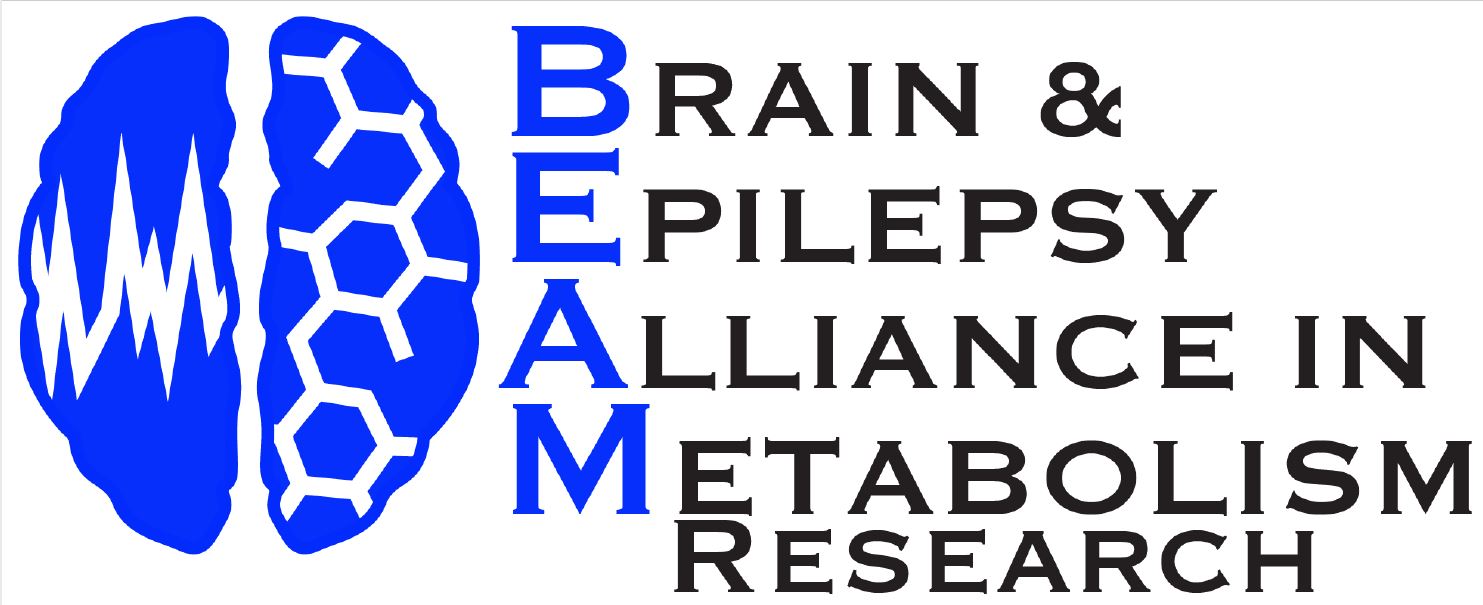
Brain metabolism is the process by which the brain converts nutrients into energy and small molecule signals. When there are breakdowns in brain metabolism, this can lead to serious neurological diseases including epilepsy, Alzheimer’s disease, Parkinson’s disease, and traumatic brain injury. These breakdowns even have been linked to diabetes.
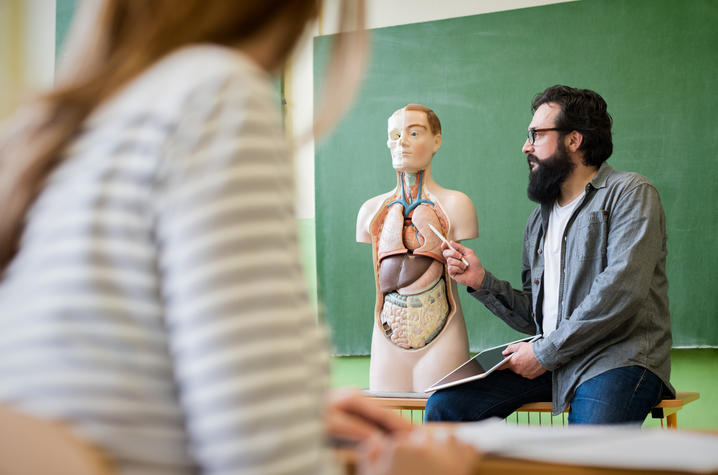
LEXINGTON, Ky. (Feb.

Many major inefficiencies in health care can be credited to two things: the lack of implementation of known beneficial therapies, and, conversely, the use of non-evidenced based care that may offer no benefits at all.
It’s this concept that drove UK College of Medicine researchers to form the Transdisciplinary Implementation Science Alliance (TISA). Supported by the Alliance Research Initiative, TISA brings together clinicians and scientists from across the University of Kentucky and the UK College of Medicine to identify and implement solutions that increase health care value.

LEXINGTON, Ky. (Feb. 9, 2021) — For Massachusetts resident Sherry Irwin, an unexpected bout of breathlessness was the first inkling that something was amiss. A retired primary care physician, she was doing file reviews for the Social Security Disability Insurance program and always liked to park her car at the top of the hill two blocks from her office in order to sneak in a little extra exercise. In late May 2020, she suddenly had to stop and rest halfway through her uphill trek.
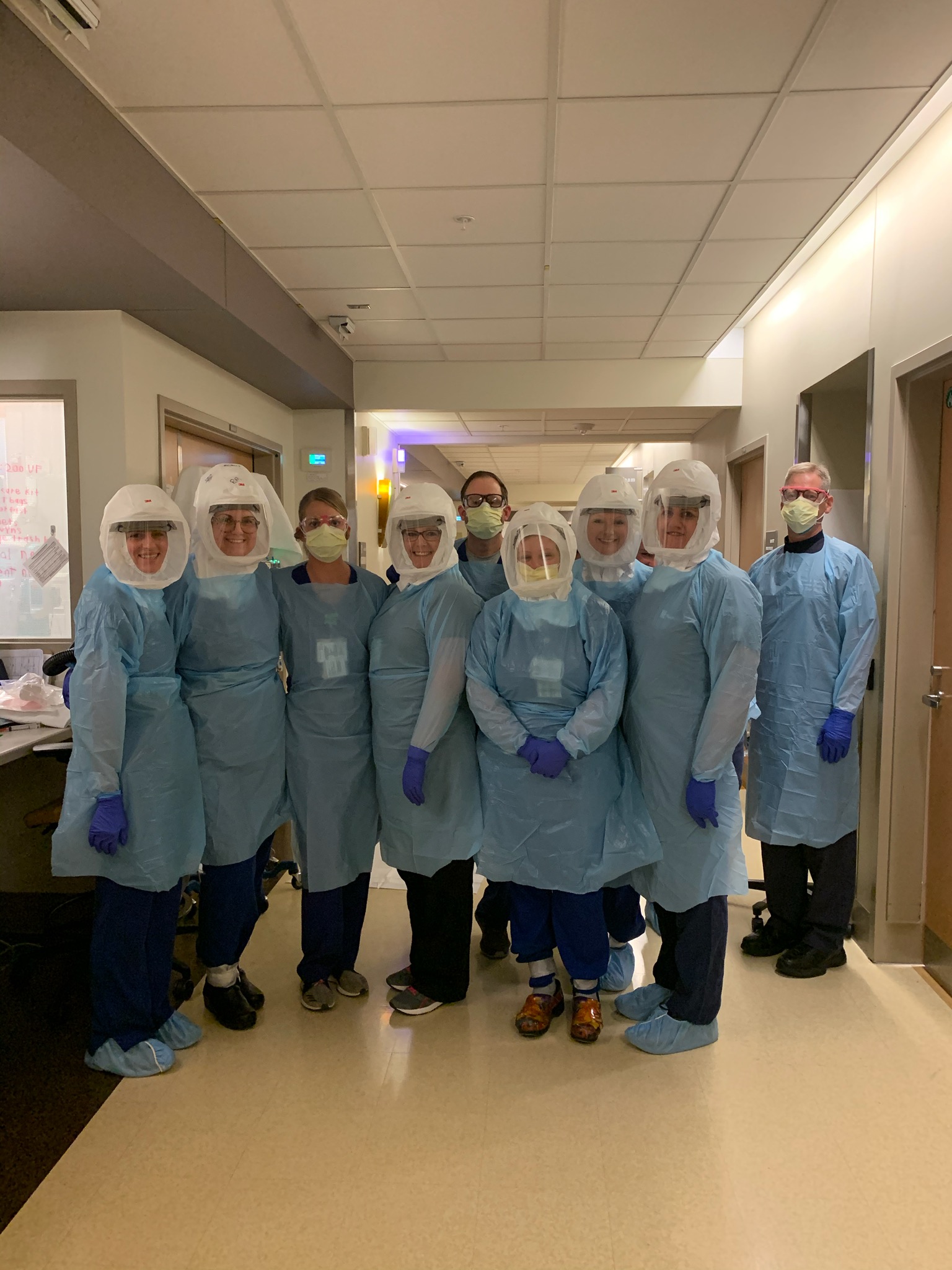
Peter Morris, MD, professor of medicine at the University of Kentucky College of Medicine and a pulmonary/critical care faculty member at UK HealthCare, pulls up a map showing the U.S. prevalence of chronic obstructive pulmonary disease (COPD), a severe inflammatory lung disease that leads to obstructed airflow and difficulty breathing.
“This is who we serve right here,” he says, pointing to Kentucky on the map. The state’s southeastern region is bright red to signify its high incidence of people with COPD.

The University of Kentucky College of Medicine is thrilled to announce the addition of Brian Hamilton, MEd, as its new director of diversity, equity, and inclusion.
In this newly established role, Hamilton works under the direction of Stephanie White, MD, MS, to advance the mission of the Office of Diversity, Equity, and Inclusion and help execute the college’s strategic plan. This includes implementing new initiatives and increasing engagement to build a more welcoming, inclusive campus while focusing on efforts for recruiting and retaining diverse faculty, staff, and learners.
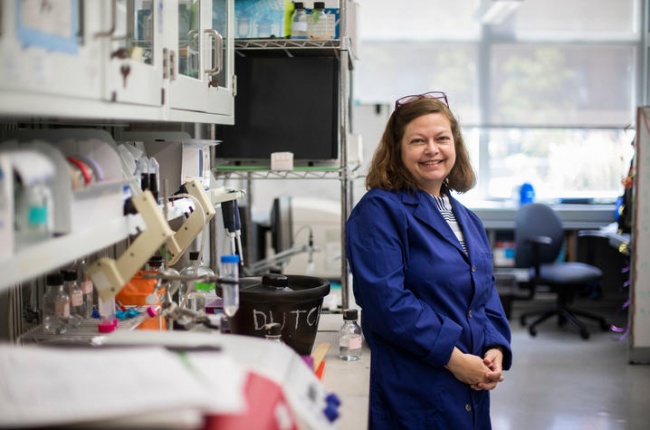
In early 2020, shortly after SARS-CoV-2, the virus which causes COVID-19, was first detected in Wuhan, China, the public learned of the virus’s devastating consequences and the dangers of its spread. But much remained unknown regarding how to combat it.
Ten months ago, a team of UK researchers joined forces to learn more about the virus that was causing a global pandemic. Since the team’s creation, it has made record progress in enhanced research, the launch of clinical trials, and the development of clinical care approaches for patients.
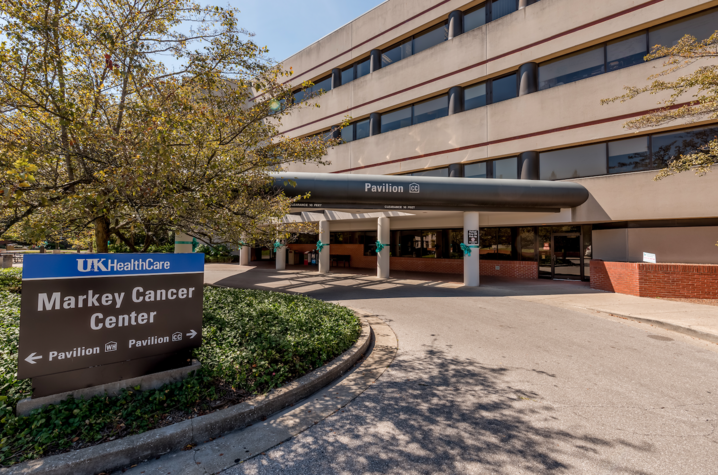
LEXINGTON, Ky. (Jan. 29, 2021) — The University of Kentucky Markey Cancer Center is teaming up with the National Comprehensive Cancer Network® (NCCN®), the American Cancer Society (ACS) and other leading cancer organizations across the country to endorse the resumption of cancer screening and treatment during the ongoing COVID-19 pandemic.

Ima Ebong, MD, MS, assistant professor in the University of Kentucky College of Medicine Department of Neurology, was recently named one of “1,000 Inspiring Black Scientists in America” in a list published by Cell Mentor, an online resource for researchers.
The list, compiled by The Community of Scholars, recognizes the significant contributions Black scientists have made in research.

LEXINGTON, Ky. (Jan. 20, 2021) – The University of Kentucky Markey Cancer Center announces the appointment of Mindy Rogers as director of the Kentucky Cancer Program – East, which is housed within the Cancer Center.

Each year, the University of Kentucky rewards exceptional research faculty with the Wethington Awards, a way to acknowledge great work while incentivizing extramurally sponsored research activity.
After witnessing the impact of the COVID-19 pandemic, 2020 award recipients from the UK College of Medicine elected to use their funds to make a difference for members of the UK campus community. They donated their monetary awards to the CRISIS fund, which helps UK faculty and staff in need.
Collectively, the Wethington Award recipients gifted more than $80,000.

As part of its commitment toward creating a more inclusive work and learning environment, the University of Kentucky College of Medicine has established additional leadership roles in the Office of Diversity, Equity, and Inclusion. The college is pleased to announce the appointment of Kevin Pearson, PhD, to oversee progress in research as the inaugural director of inclusive research initiatives.
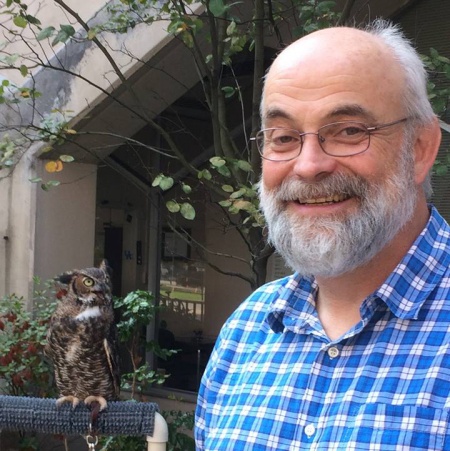
Lyme disease is the most common vector-borne bacterial disease in the U.S., with 200,000 new cases each year. While incidence in Kentucky typically has been relatively low, the incidence of the tick vector, lxodes scapularis, has increased over the past five years, even spreading to areas it did not previously live.

Marilyn Duncan, PhD, a driven researcher and well-regarded professor in the department of neuroscience, has been elected to serve on the University Senate Council, the executive body of the University Senate.
Dr. Duncan is serving a third term on the University Senate. During her tenure she has been part of the Advisory Committee for Prior Service, the Academic Programs Committee, the Academic Area Committee for Promotion and Tenure in the Biological Sciences, and the Library Committee.
Her term on the Senate Council will run from Jan. 1, 2021 to Dec. 31, 2023.

Daniel Lee, PhD, is an associate professor at the University of Kentucky College of Medicine Department of Neuroscience and a researcher at the UK Sanders-Brown Center on Aging, an internationally recognized Alzheimer’s Disease Research Center. He joined the UK College of Medicine in August 2019. He is also a member of the Faculty of Color Network and currently serves as co-director for the Research Education Component (REC) of the UK-ADRC.